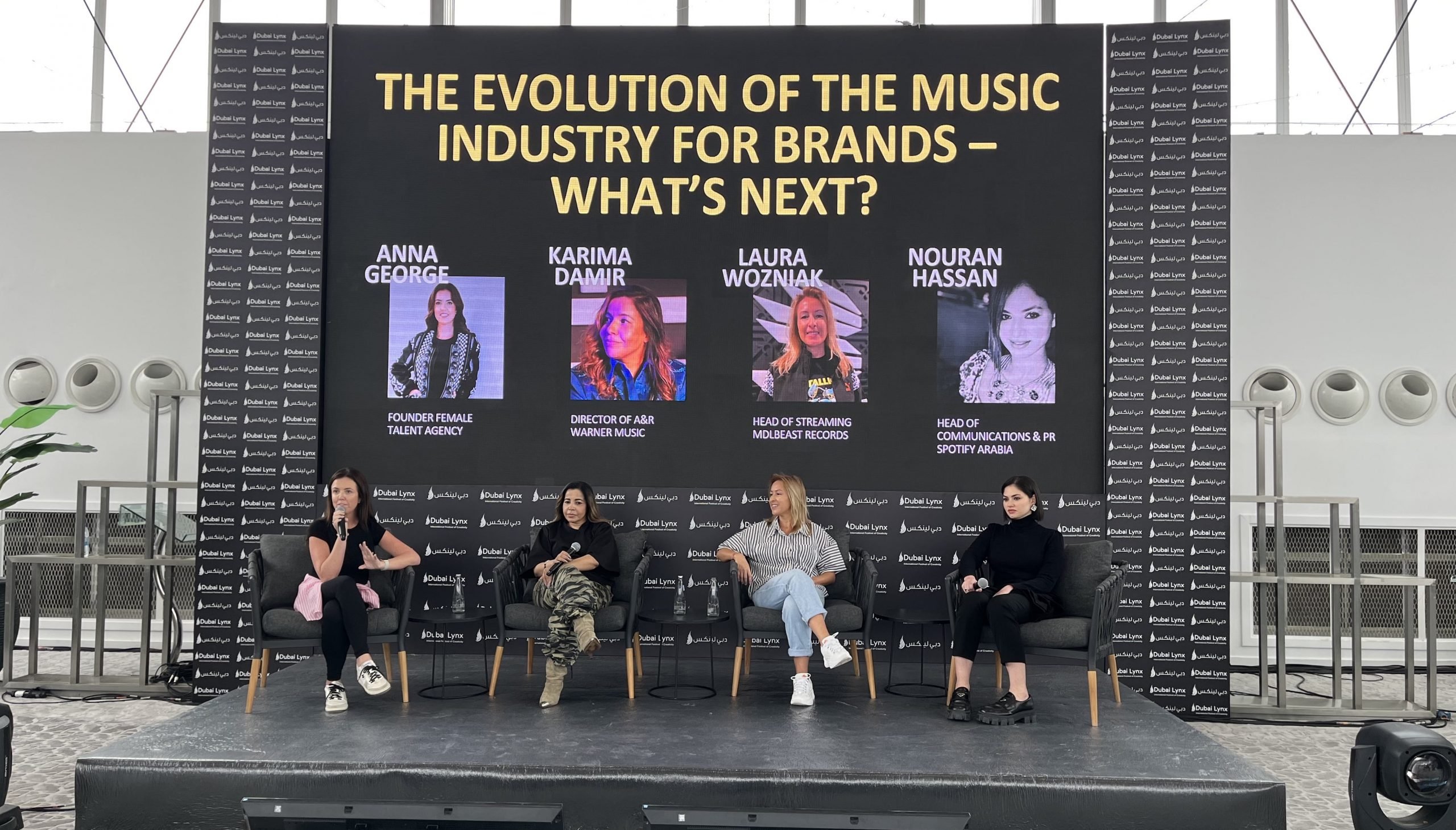
The evolution of the music industry for brands has been shaped by a range of factors, including tech advancements, changes in consumer behaviour, and the growth of digital platforms.
From immersive experiences, virtual events to branded content and collaborations and AI-generated music, the future of the music industry for brands is likely to be characterised by innovation, creativity, and a continued focus on delivering unique and engaging experiences to consumers.
Anna George, Founder of the Female Talent Agency a first-of-its-kind female-led creative agency specialising in music and brand partnerships, guiding brands and artists to success kicked off the panel.
Karima Damir, Director of Head of A&R And Marketing at Warner Music Middle East, said: “I think we have such a diversified and a vast region in the Middle East and North Africa and each region like North Africa is a bit different to Egypt, is a bit different to Levant and GCC.
“What I’m expecting to rise as a genre more than anything else is the urban genre. We have genres like in Egypt, Mahraganat or even hip hop, rap, drill, all these because there are communities that are working together and then they’re collaborating. So they’re making this genre richer. In North Africa, I think it’s the same. When you go to Levant, you’ll have a bit more of indie pop that is on the rise.”
Then there’s cross cultural collaborations in the music industry, which have become increasingly popular because it celebrates diversity, fosters creativity, expands market opportunities, and promotes social and cultural exchange.
By bridging cultural divides and embracing differences, artists can create music that cuts borders and connects people from all walks of life.
“When two artists who collaborated from cross cultural collaborations, it enables each artist to actually cross over to other artists or other collaborators, fan base and audience.
“It also an exchange of cultures because that’s what makes us richer. We recently signed Nora Fathahi, an artist who’s Canadian Moroccan but she moved to Bollywood when she was around 18 and and now she’s a Bollywood superstar, a movie actress, a dancer, a performer and an artist.” adds Karima Damir.
Nouran Hassan, Head of Communications & PR, MENA at Spotify, discusses how the platform is ensuring to connect with the region’s diverse audiences.
“If you look at how internet is being adopted, it’s being adopted at an extremely high rate. 90 percent in Saudi Arabia, 70 percent in Egypt and if you look at the market from a music lens, a couple of years back, we were one of the fastest growing markets according to IFPI. So, it’s looking really bright for the region.
“Over the past five years, Spotify has been really focused on three things. The first thing that we focused on is hyper localisation. It’s so easy for brands to come into the Middle East and North Africa and look at it as one country or as one bucket.
“What we really wanted to ensure that there’s a lot of hyper localisation going on. When we talk hyper localisation. We’re looking at it from different parts, from the smaller details to the bigger details. You’re looking at it from your marketing initiatives, from the dialects that you’re adopting on your social media channels and on your platform as well.”
Laura Wozniak, Head of Streaming & Distribution at MDLBEAST Records, said: “access to fresh and authentic content, early adoption of influence and more cost-effective partnerships. Most emerging artists are Gen Z and that’s exactly who most brands want to tap into so it’s win-win.”









